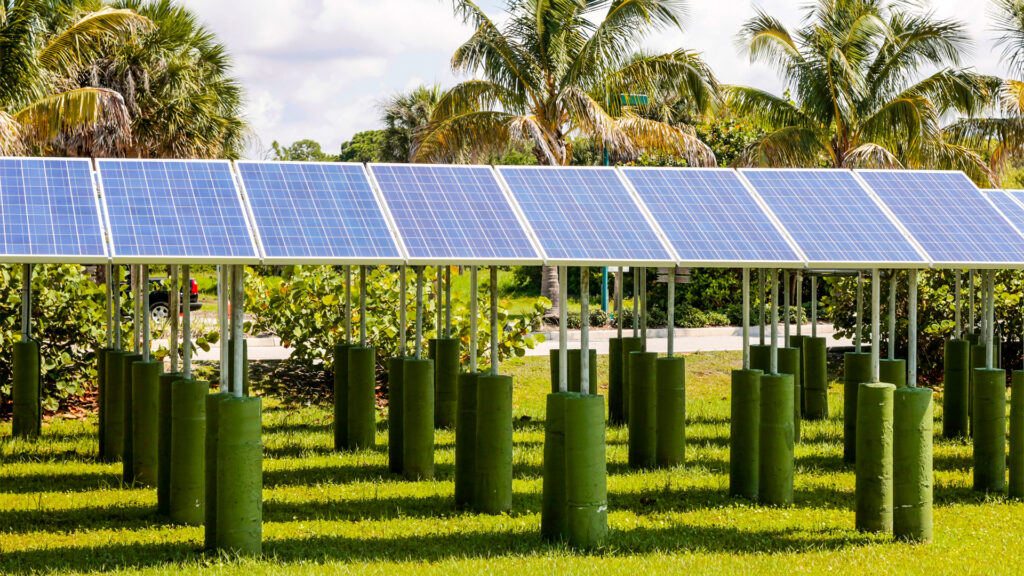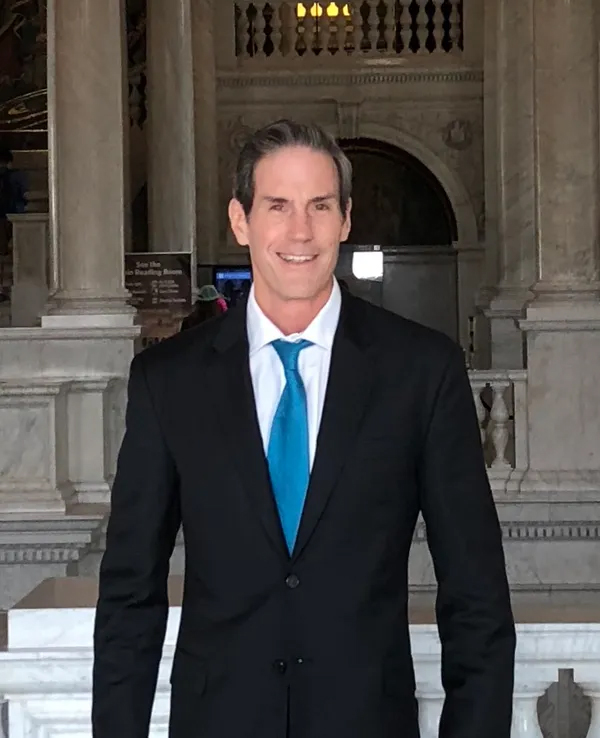By William McQuilkin, retired U.S. Navy rear admiral
In his garden in Southeast England, Rudyard Kipling, famed author of “The Jungle Books,” had a sundial engraved with the words, “It’s later than you think.” These words aptly describe how I feel about our response to the climate crisis.
Standing on the beach recently, looking east at the Atlantic Ocean, it really hits home that Florida is not only uniquely at risk to sea level rise, increased flooding events and supercharged hurricanes, but is also a test case for how we as a country meet the challenge of a changing climate. Rather than a canary in a coal mine, it’s more like a sandpiper on the shoreline.
Talking about climate change is a hard but necessary conversation that we need to have. Even the language that scientists and policymakers use to talk about climate change is confusing. Words like adaptation, resilience and mitigation might not resonate with the working mother who is rushing to pick up her child at school.

She does know that she doesn’t want that same child outside at recess when the heat index reaches 105 degrees.
It’s not about politics, but people — our children and grandchildren. The good news is that by working together, we can do better. There is also much we can do at the community, city and state level to avert the worst effects of climate change from happening and put us on a better course for the future.
At the state level, I am often dismayed by how our government officials act and vote on this important issue affecting all Floridians. Our two senators voted against the bipartisan infrastructure law that provides billions to states to help them better prepare for the effects of climate change.
They also voted against the Inflation Reduction Act, which provided $369 billion in funding to address climate change, with many provisions targeted for small businesses and manufacturers. This means jobs for the working men and women of Florida. Most recently, Florida declined federal grant funding aimed at helping states target greenhouse gas emissions.
Forty-five other states signed on for the program, but not Florida — the peninsula state many see as the most vulnerable to climate change.
This is not a Democratic issue or a Republican issue. We can’t let partisan politics get in the way of forward progress. The stakes are too high. In 2006, a Republican governor, Arnold Schwarzenegger, passed the first law in the U.S. requiring greenhouse gas emissions targets. That is the kind of strong leadership Florida needs.
Energy transitions are hard and complex. Working men and women are right to be troubled by rising energy and gas prices, but even they know that “drill, baby, drill” is an oversimplified, unimaginative solution.
On the First Coast, JEA could move faster to adopt renewable energy technologies (like solar electric generation) and work to retire the coal-fired Northside Generating Station. The RenewJax Campaign is doing an impressive job of leading change in this area.

I would also love to see Jacksonville join the 14 other Florida cities who have committed to 100% clean and renewable energy by 2040. Absent any statewide legislation, if enough cities in Florida come together it could lead to real impactful change at the state level. It is time to green the grid.
We are the Sunshine State and this is the solar age. The International Energy Agency touts solar energy as the cheapest energy source in history. There has been an exponential rise in solar power over the last few decades because of reduced costs, innovation and favorable government policies.
It is a revolution that Florida can truly lead, but it is going to take good leadership and sound policies. It’s time to turn to the sun.
We can incentivize homeowners to install rooftop solar with policies that better allow them to recoup their investment. We can also promote the creation of community microgrids that could lead to greater resilience during extreme weather events.
There has been a concerted call to action on climate change for over 30 years. Unfortunately, given the magnitude of the problem, that action has been slow and insufficient. There are many vested interests to overcome and a lot of inertia in the system. I think it has now reached the point that more of us must become politically active.
We must press local and state officials to move toward more renewable energy and a more sustainable future. We need to get moving, because it’s later than we think.
William McQuilkin is a retired U.S. Navy rear admiral. He lives in Ponte Vedra Beach. This opinion piece was originally published by the Florida Times-Union, which is a media partner of The Invading Sea.
If you are interested in submitting an opinion piece to The Invading Sea, email Editor Nathan Crabbe at ncrabbe@fau.edu. Sign up for The Invading Sea newsletter by visiting here.




Years ago, I presented a paper and a talk about putting solar panels over stormwater filtering marshes (I call it a “Solar Marsh”. This would have the advantage of using costly land area for 2 important processes-solar energy and cleaning surface waters.
Cheers
Dr. J. W. Louda blouda@fau.edu
The only way we survive climate change is to stop using any fossil fuels at all.